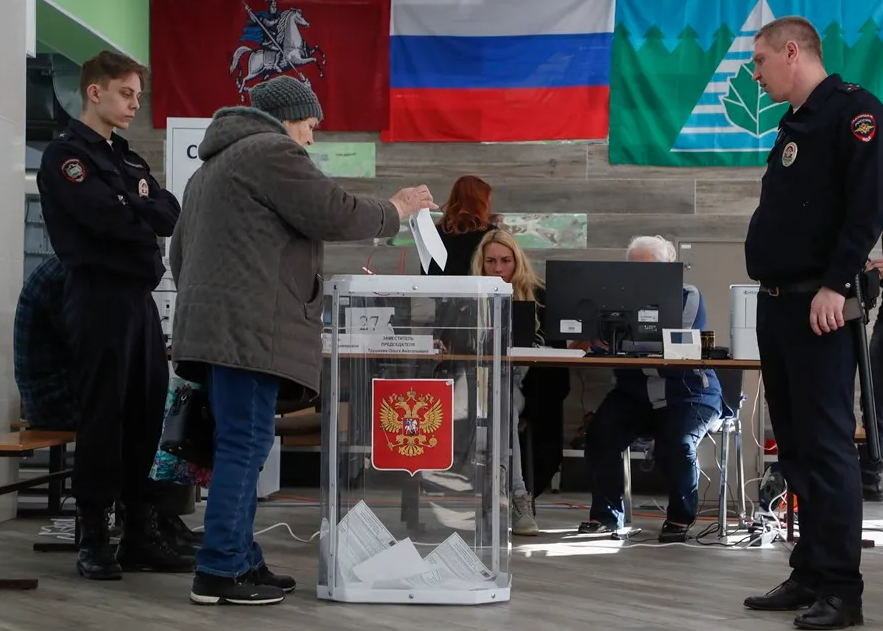Russia is celebrating today the third and final day of the presidential elections, in which more than half of the 112 million Russians called to the polls have already participated.
In this country of eleven time zones, schools opened at 8:00 p.m. GMT on Saturday in the Kamchatka peninsula and will close at 6:00 p.m. GMT on Sunday in the Baltic enclave of Kaliningrad, after which the first official preliminary results will be known.
Advance voting of soldiers and annexed regions
According to the Central Election Commission (CEC), more than 50% of voters exercised their right to vote on Friday and Saturday, while 2.6 million did so in advance, many of them soldiers and inhabitants of the Ukrainian regions annexed by Russia.
The first 24 hours of voting were marked by around twenty incidents such as the throwing of Molotov cocktails at polling stations and the spraying of ink and paint on the ballot boxes, which invalidated a few hundred ballots.
The CEC was pleased that neither these incidents, nor the “unprecedented” cyber attacks nor the Ukrainian border incursions, which left several dead, have prevented Russians from turning out en masse to vote in the eighth presidential elections in the history of this country. since 1991.
While sociologists acknowledge that they did not expect such a high turnout, the opposition suspects that the authorities have resorted to administrative recourse when forcing public sector employees, the electoral breadbasket of the Kremlin candidate, Vladimir Putin, to vote.
While the CEC and the Russian Ombudsman denied the existence of irregularities, independent observers reported some cases of electoral manipulation.
Voting intention of more than 80%
Putin, who has a voting intention of more than 80%, according to official polls, could achieve his largest electoral victory since he came to power in 2000.
His three rivals are the representative of the New People party, Vladislav Davankov, and the communist Nikolai Kharitonov, who have 6% of support among those surveyed, and the ultranationalist Leonid Slutski, who has around 5% of support.
Call for the opposition to the Kremlin
Meanwhile, despite the warning from the Prosecutor’s Office, the opposition to the Kremlin maintains its call for “Noon without Putin”, which consists of going to the doors of the polling stations at 12 on Sunday to show their rejection of the head of the Kremlin, action that was supported before his death by the opposition leader, Alexei Navalni, and now by his widow, Yulia.
Some 4.5 million voters can vote in the areas occupied by the Russian army in the four Ukrainian regions annexed by Moscow (Donetsk, Luhansk, Kherson and Zaporizhzhia).
Ukraine called the elections in those regions, which make up a fifth of the country’s territory, a “farce,” a vote that was also condemned by the UN Secretary General, António Guterres.
After the death in prison of the Russian opposition leader, Alexei Navalny, his coreligionists – who hold Putin directly responsible – called on the West not to recognize the electoral results.
BY: TTU








